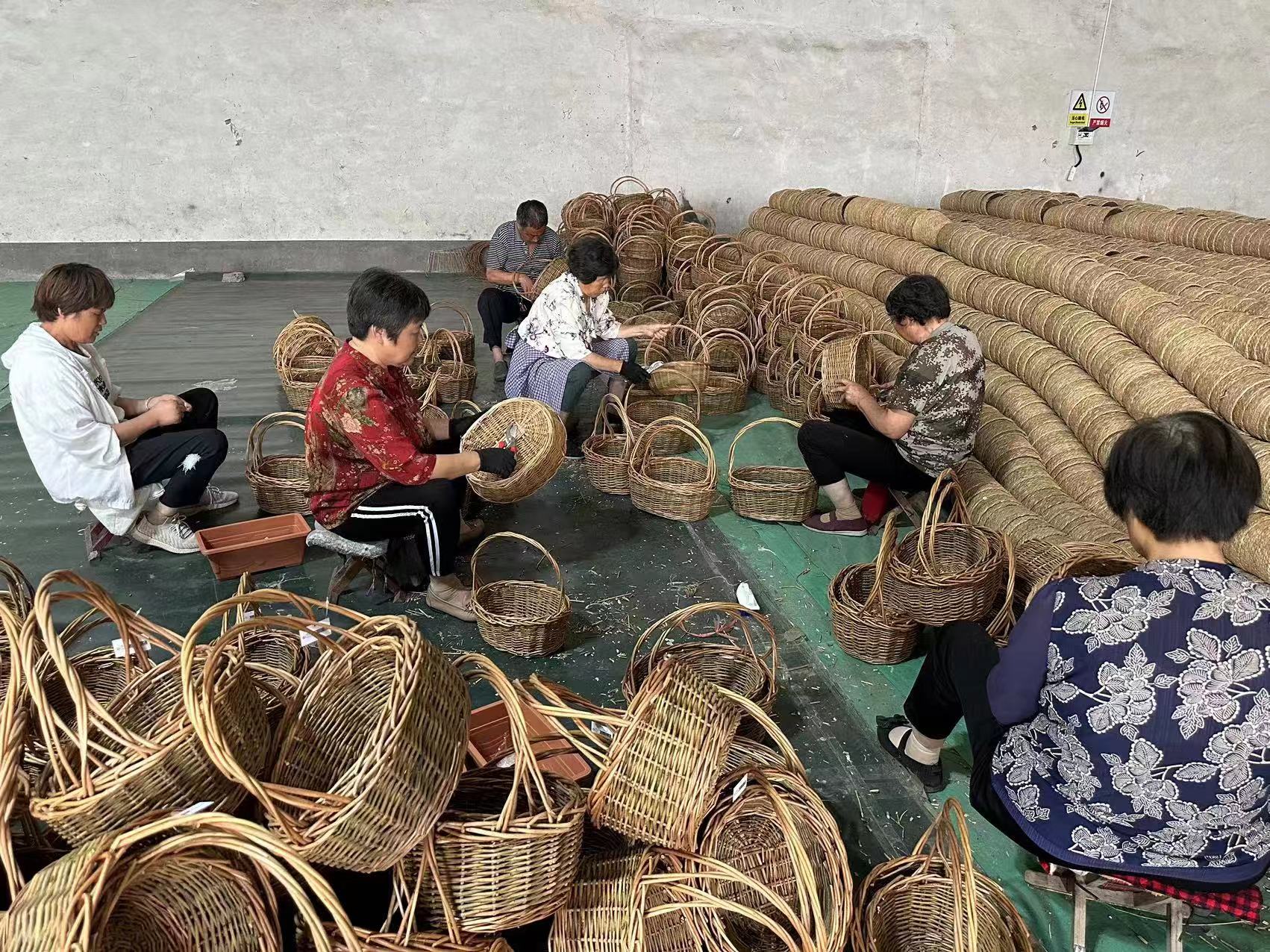
In the heart of the city of Linyi in Shandong, a legacy of resilience and creativity thrives amidst the soft, pliable wickerwork that has become the region's emblem. This legacy, which is cherished not only for its economic importance but also for its role in empowering local women, has its roots in an enchanting legend.
The legend of the dragon maiden
Long ago, a hard-working young fisherman encountered a mystical dragon maiden on the tranquil banks of the Shu River. Fascinated by her beauty and grace, he married her and together they gave birth to a daughter. However, their joy was soon marred by the newborn's incessant crying. In a moment of maternal ingenuity, the dragon maiden wove a wicker basket and placed her daughter in it. Miraculously, the child was immediately soothed. This discovery inspired the young family to share their newfound skills with their neighbours and teach them the art of basket weaving. In gratitude for the dragon girl's gift, the community affectionately called her the "Wickerwork Woman"
Photo credit: UNDP China
Du Peilan: guardian of tradition
In 1985, Du Peilan, a Linyi native with a university education, set out to preserve and promote the ancient craft of wickerwork. Over the past 40 years, Du Peilan has not only perfected various techniques, but has also dedicated herself to training others and teaching over 2,000 women the intricacies of this traditional art. Her work has empowered these women, providing them with the skills to contribute to their own economic well-being and that of their families. Her efforts have ensured the continuation and advancement of weaving culture in Linyi, seamlessly blending traditional knowledge with modern biodiversity and sustainable livelihoods. "We're using traditional methods to turn plants into products that women can create and sell from home. This helps women in agriculture turn their skills into income, allowing them to care for their children while supporting their families," says Du Pelian.
Lu Enzhen: A beacon of empowerment
In the midst of this thriving community stands Lu Enzhen, a visionary who has made it her mission to empower unemployed and marginalized women by introducing them to the art of wickerwork. Through an innovative business model known as "company + base + low-income family"," Lu Enzhen has combined the cultivation of willow rods (a special type of willow) with the production of wickerwork. Her locally made goods are now sold online and reach markets in over 20 countries in Europe, America and Southeast Asia. "Willow weaving not only creates jobs and boosts income for local women, but it has also grown into a full-fledged industry. This small craft has helped improve lives and driven economic growth in our community," says Lu Enzhen.
Lu Enzhen's business is thriving, has empowered more than 3,000 women economically and encouraged the development of a traditional industry that is closely linked to nature. Her journey is a testament to the transformative power of women's contributions in helping others while boosting the local economy and promoting environmental sustainability.
The role of BIOFIN
The United Nations Development Programme’s Biodiversity Finance Initiative (BIOFIN) plays a critical role in this story of empowerment and environmental awareness. BIOFIN is dedicated to mobilizing funding for biodiversity in different countries around the world. It has a component to support women through gender-responsive financing solutions. In Shandong Province, BIOFIN aims to develop customized financing solutions for traditional handicraft enterprises and align them with the objectives of the Convention on Biological Diversity (CBD): sustainable use of biodiversity and fair and equitable sharing of the benefits of genetic resources.
Photo credit: UNDP China
"Today, it's not just about protecting biodiversity but also using it sustainably. The willow weaving industry in Linyi has turned natural resources into economic opportunities, helping local women and communities improve their livelihoods while promoting sustainable practices. We're now looking for ways to bring more funding into this industry," says Deng Jie, the BIOFIN technical focal point in Shandong.
Through a gender-responsive approach, BIOFIN seeks to close the biodiversity financing gap, improve the livelihoods of local communities and empower women economically. Support for the initiative has contributed significantly to the success stories of women like Lu Enzhen, who demonstrate how traditional crafts can contribute to both biodiversity conservation and women's economic empowerment.
Through the interplay of dedicated individuals and initiatives like BIOFIN, the city of Linyi stands as a beacon of how tradition, biodiversity and women's empowerment can coexist and thrive harmoniously.
Co-authored by Fei Leng (BIOFIN Coordinator in China) and Özlem Culhaci (Gender Focal Point, BIOFIN Global)
Categories
Archives
- January 2025 (1)
- December 2024 (5)
- November 2024 (5)
- October 2024 (14)
- September 2024 (6)
- August 2024 (9)
- July 2024 (7)
- June 2024 (3)
- May 2024 (6)
- April 2024 (5)